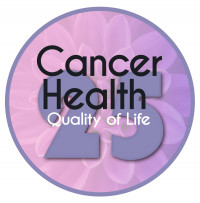The Cancer Health 25 is an annual list that honors individuals who have made a difference in the lives of people with cancer. This year’s theme is quality of life. To see the full list, click here.

It was a backpacking trip through Europe that sparked Linda E. Carlson’s interest in Buddhism and meditation. Now the Enbridge Research Chair in Psychosocial Oncology as well as a psychosocial oncology professor in the Department of Oncology at the University of Calgary Cumming School of Medicine in Canada, Carlson, 52, began exploring the connection between mindfulness and health as a PhD student.
In 1997, she designed Mindfulness-Based Cancer Recovery, a mindfulness-based program at the Cancer Center in Calgary. Carlson tailored the program to meet the specific needs of cancer patients, including addressing the loss of control and the uncertainty that accompany a cancer diagnosis.
That kicked off her pioneering research examining the effects of mindfulness on cancer survivors.
Over the past 25 years, she and her team have done multiple studies on how mindfulness can help cancer patients. In 2013, she coauthored a study that found that pairing yoga with a mindfulness program was more effective than group therapy at helping breast cancer survivors cope with lingering stress and anxiety. Another study found that combining yoga with a mindfulness program could affect breast cancer survivors on a cellular level—helping keep protective cells known as telomeres from becoming shorter, which occurs as a result of long-term stress.
Carlson has also worked hard to bring mindfulness to people who can’t do the program in person. She cowrote Mindfulness-Based Cancer Recovery, which features guided meditations, and partnered with eMindful.com to create a 12-week program that anyone can access online. And, yes, the virtual program can be just as effective at reducing stress, side effects and symptoms as the one in real life, noted Carlson in a talk she gave for the Society of Integrative Oncology.
Most of Carlson’s studies have examined cancer survivors. Now she’s researching the effects of the eMindful program on breast and colorectal cancer patients just starting chemotherapy to see whether it can help prevent, delay or diminish the side effects of chemo, including nausea, fatigue and brain fog. Another study will look at whether cancer patients using a mindfulness app reap these same benefits. These are just a few of the many ways Carlson’s work has helped cancer patients and survivors enjoy a better quality of life.







Comments
Comments